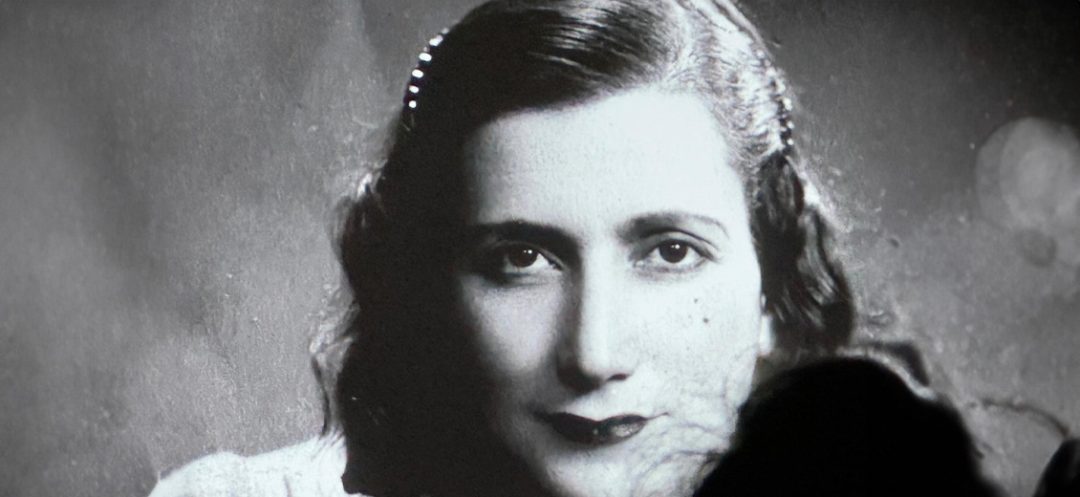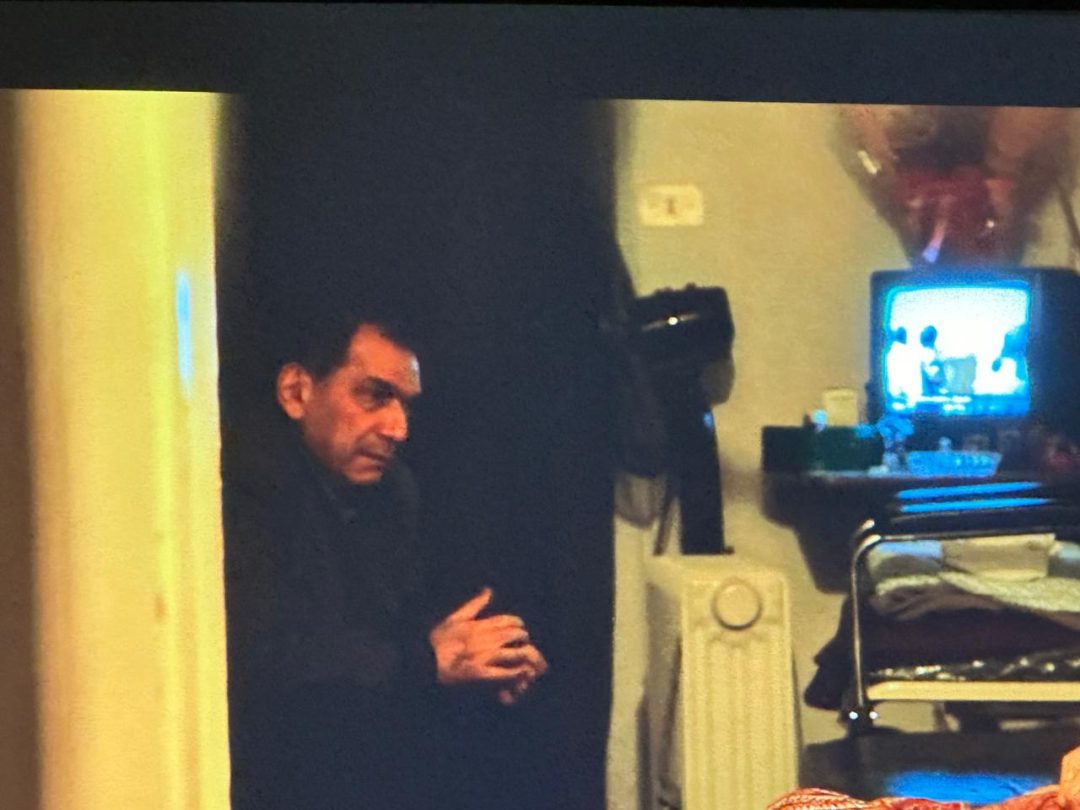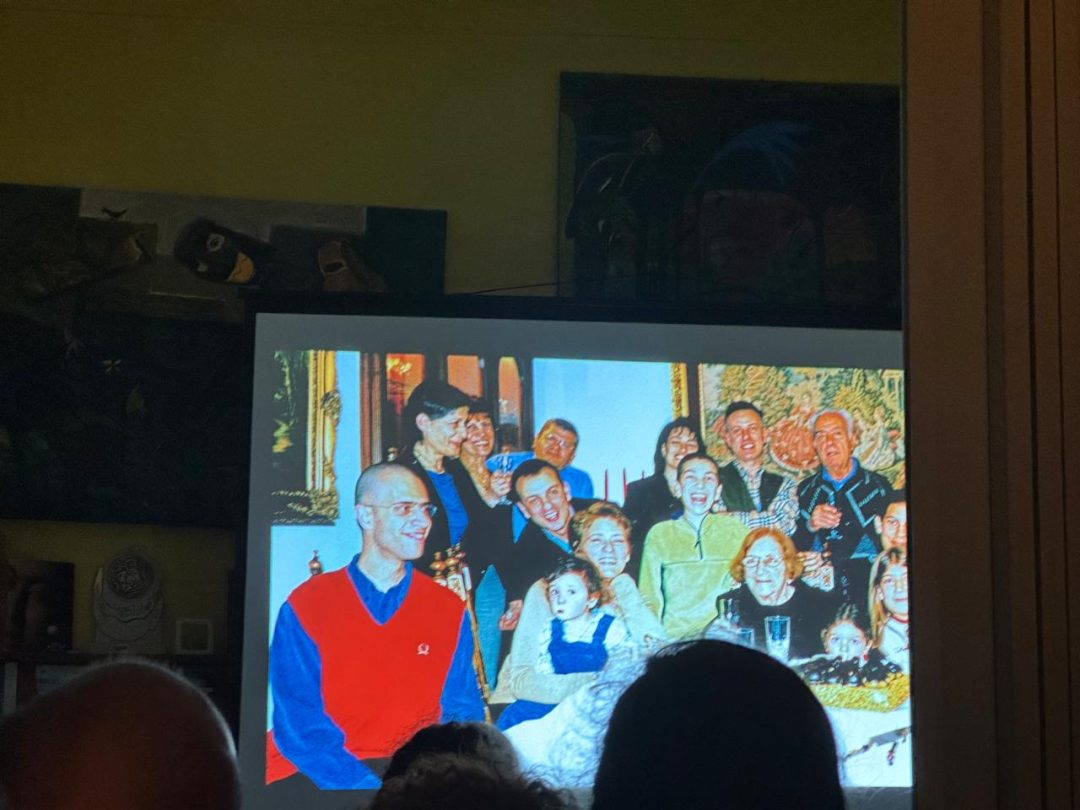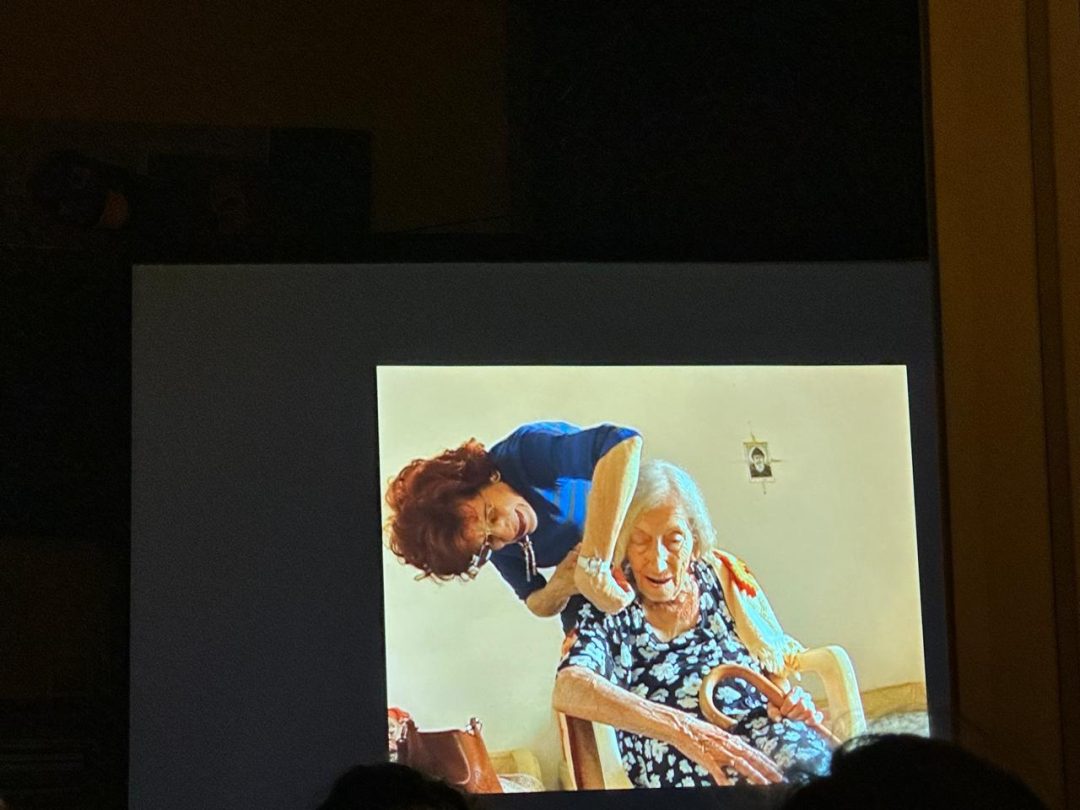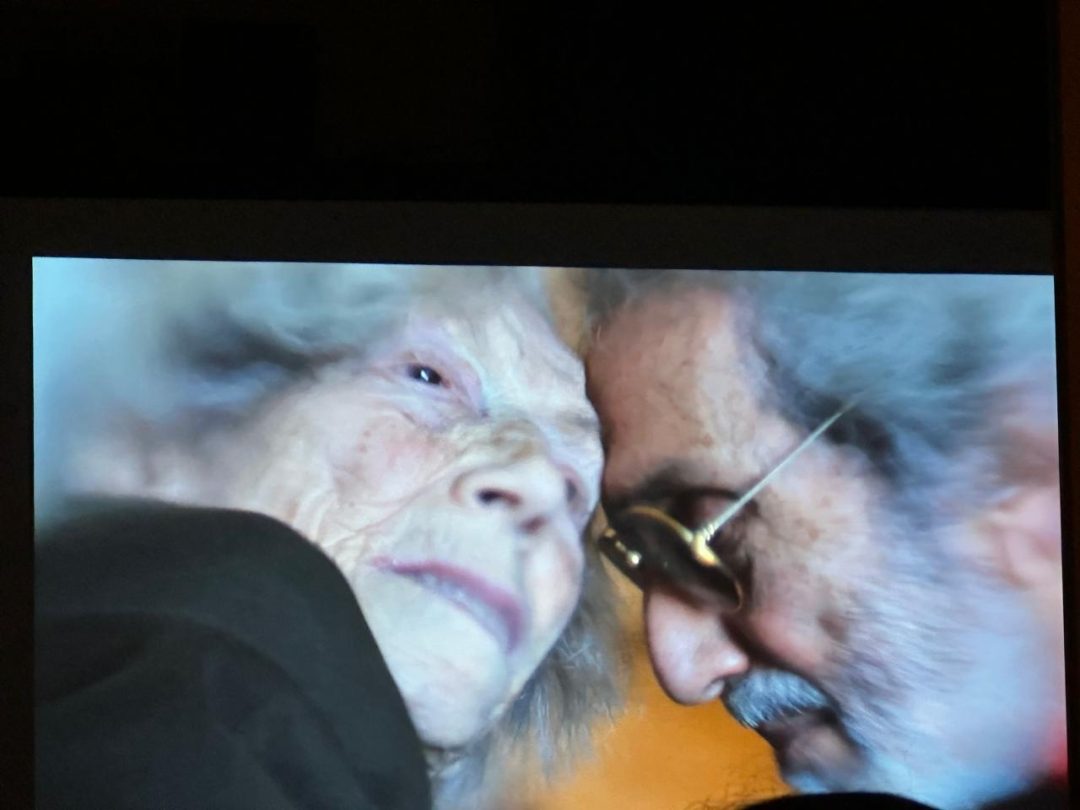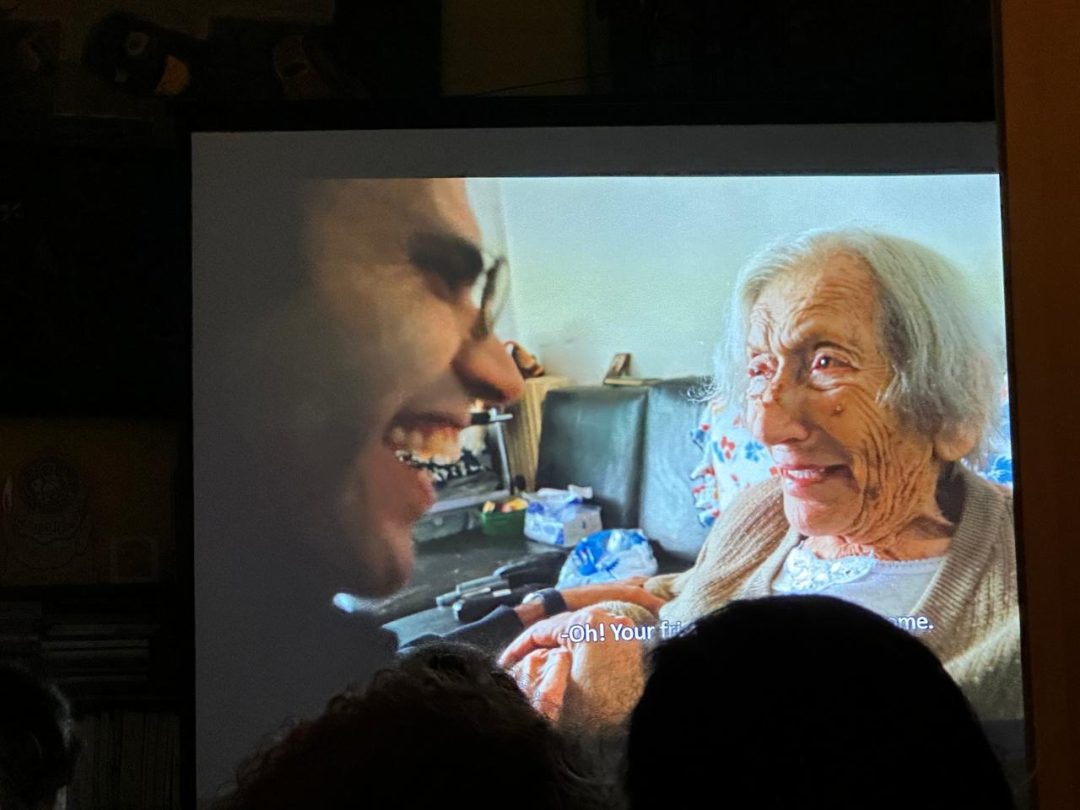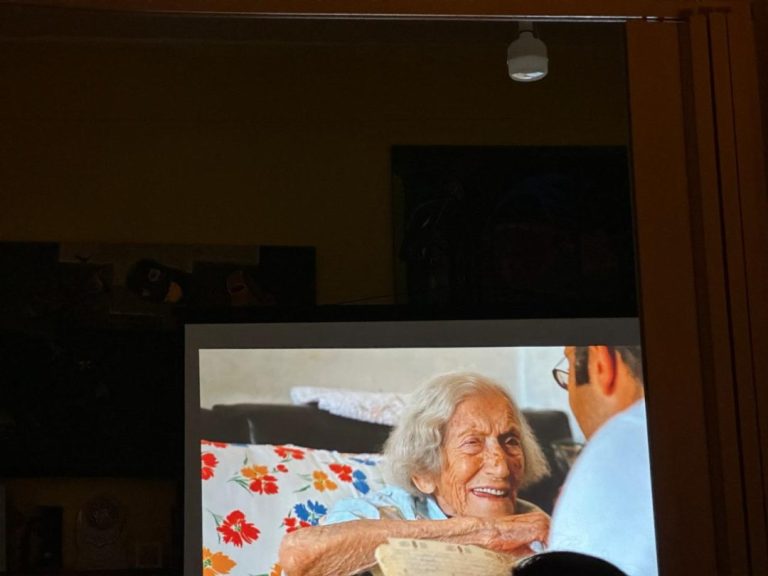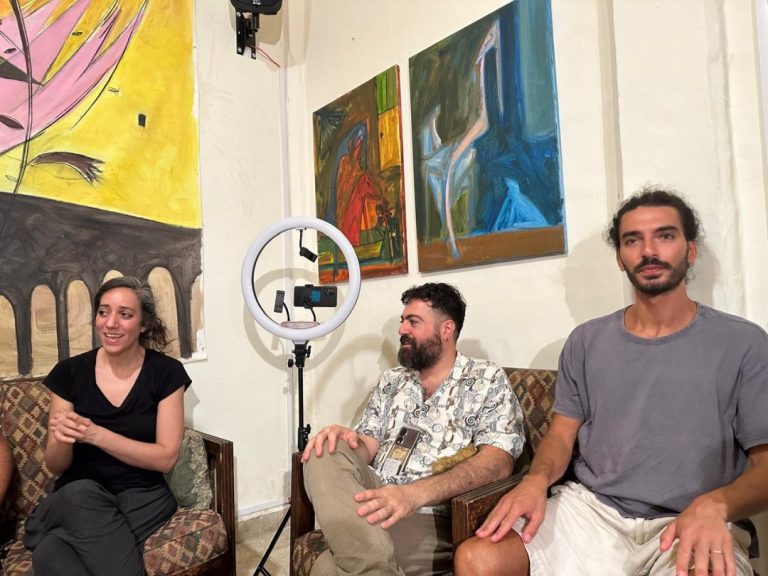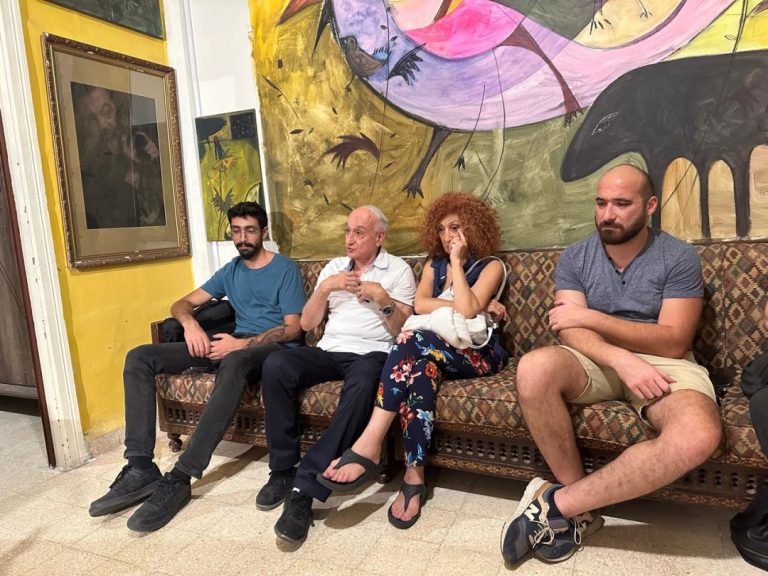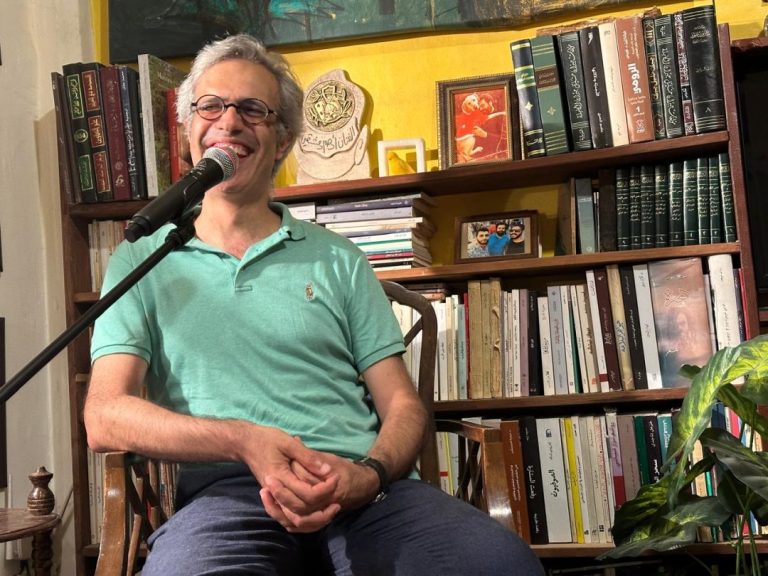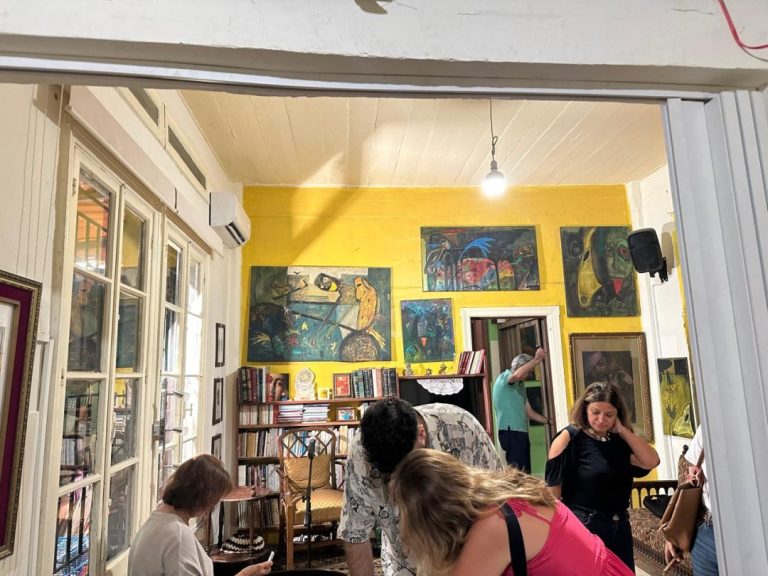Listen to the article
As part of the 4th edition of the Anbar wa Godot Festival for culture and arts, the film Ya Omri by Hady Zaccak was screened on July 16, 2024. The event, held at Beit el Fann, the house of Adham Dimashki in Beirut, took place in an intimate and warm atmosphere. The festival runs from June 18 to September 19, 2024.
Cinema enthusiasts attended the screening of Hady Zaccak’s film Ya Omri at Beit el Fann, the house of Adham Dimashki, organizer of the Anbar wa Godot Festival for culture and arts. The screening was followed by a Q&A session with the director. Watching Ya Omri, released in 2017, felt like a journey back in time on the big screen, within the picturesque setting of an old Beirut house, with walls adorned with Adham Dimashki’s paintings.
Hady Zaccak’s film took on a whole new dimension while retaining the essence of its initial screening. The audience’s reactions were similar to those at its original release, filled with laughter, tears, and emotion. The story, through the lens of time, had scattered the pebbles of Little Thumb in small events and personal experiences, but also in a great tumult of life between the two screenings: the first in 2017 and the most recent in 2024. One of the significant dates between these two years is August 4, 2020. In Beirut, the collective memory recognized the smell of death. From this great death of an amnesic city branched out personal deaths in each family, followed by inner deaths and rebirths to life, much like the piano tune played by Henriette, the director’s grandmother, whom his camera followed step by step over the years, until her final departure.
Ya Omri tells the story of an exiled woman who returns to her homeland and starts a family. It’s the story of a grandmother – and of all grandmothers – the one who gives birth to the mother, who cherishes her grandson as the apple of her eye. In the director’s lens, it becomes a tribute to this woman born of exile, who experienced the wrenching from her adopted land, Brazil, then returned to Lebanon where she lived a fragmented memory of marriage. In this grand story with universal dimensions, our small stories are embedded, each one’s own: love, life, marriage, friendship, family, death, the country, and horizons beyond.
Questions to Director Hady Zaccak
If you had edited the film today instead of in 2017, what sequences would you remove and what archival footage would you include?
I would remove the images that personally disturb me, such as close-ups of the skin, hands, and sleep. I would be more cautious. But this feeling comes with age; I feel like I’ve somehow burned the boundaries. Regarding the archives, I would have added footage of people who are no longer with us. I recently watched a clip of my mother when she visited the house, a scene that was completely omitted. Today, it would have taken on an entirely different dimension. Films change over time. However, they also reflect a particular period. This film represents a part of my story, that is, the age, maturity, or perception of the director when his work was released.
Why did you choose to avoid the typical chronological narrative, from past to present or vice versa?
Because memory has no chronology. Its recollections ebb and flow. I have always wondered why, when writing a biography, a certain chronological order is respected, from the person’s birth to their evolution over time. Furthermore, I didn’t intend to trace “téta’s” biography but to revitalize her memory. Each time, I used to bring her a photo, a book, a text, or a video to revitalize her memory.
What are your future projects?
After this film, I had no intention of creating another personal project or film. That’s why I resorted to distancing myself. I worked on a city project that took me as many years of work as a film would. As for the next film, I have been consciously or unconsciously working on an autobiography for fourteen years: whether it’s a car, my grandmother, a zaïm, a city, or a personality. Autobiography, in particular, also traces collective memory and History.

